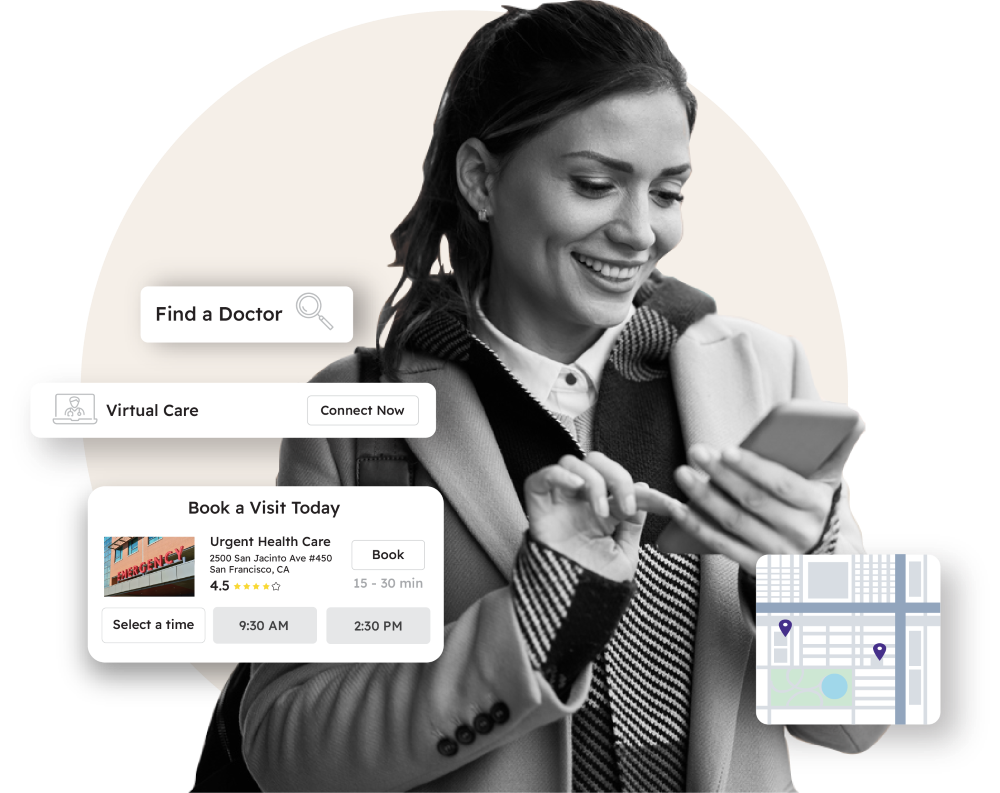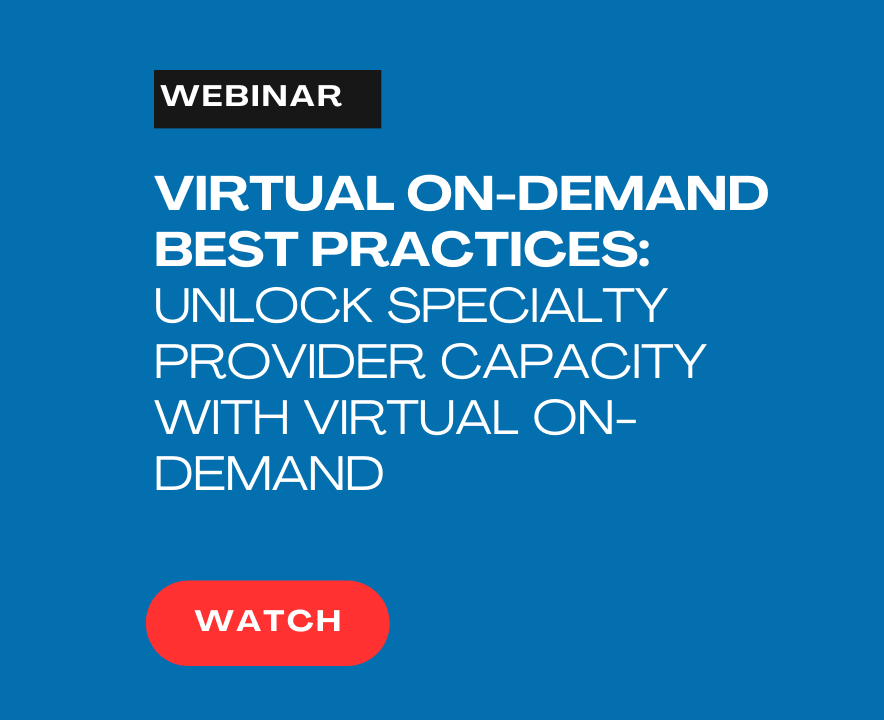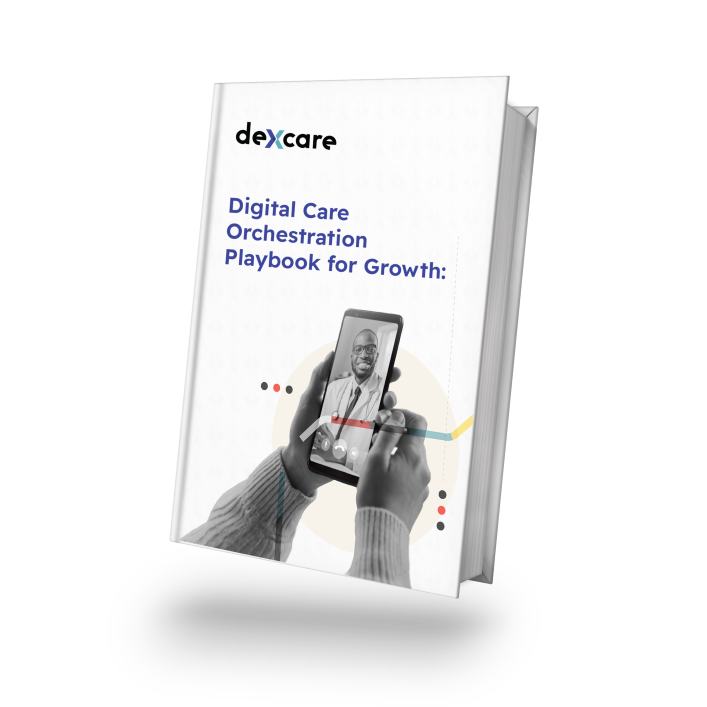Is Your Patient Scheduling Software Focused on the Wrong Things?

When it comes to booking appointments, your patients are looking for the “easy” button. But is your health system’s patient scheduling software up to the task?
Ideally, the best medical scheduling software will help guide your patients to an appointment that meets both their needs and your providers’ schedule. But too often, this doesn’t happen.
Right now, 63% of providers nationwide use some type of appointment scheduling software, yet patients still wait an average of 26 days to see their primary care practitioner of choice. Equally concerning, health systems struggle to connect patients with best-fit care based on the acuity of their health condition and clinician availability. Why? Because traditional self-scheduling tools focus only on scheduling and ignore other critical pieces of the puzzle.
Where traditional patient scheduling software falls short in the healthcare industry
It’s common for health systems – and even some software providers – to look at patient scheduling in a silo, without considering the intricacies of the health system. The best healthcare scheduling software will take a wider view, incorporating capacity management techniques such as nudge theory to help patients make their way through their scheduling journey.
Imagine the power of a tool that guides the appropriate patient to a virtual or urgent care visit instead of an in-person appointment. By providing this added context, you can get patients the care they need faster while also removing the strain from overbooked providers.
Solutions Spotlight: Smart Scheduling
Deliver a unified booking experience built to convert
Self-scheduling + capacity management of healthcare providers: what it looks like
When capacity management tools are integrated within a self-scheduling platform, it empowers health systems to drive digital care orchestration more thoughtfully. As a result, health systems can:
- Direct a patient to a nearby urgent care facility instead of the emergency department (ED) when ED wait times are long
- Suggest a virtual visit (with 10–20-minute wait times) to a low-acuity patient, allowing them to see a provider quickly and eliminating a time-consuming trip to a brick-and-mortar care facility
- Connect lower-acuity patients with a physician assistant or nurse practitioner, freeing up physicians’ time and allowing specialists to practice at the top of their license
- Healthcare professionals save time by being able to more efficiently manage the intake process
By focusing on capacity management, health systems can see more patients with the staff they have, while also allowing their specialists to see those who need them the most. It’s a win for patients, providers, and the health system.
Patients deserve more than complicated decision trees
Along with overlooking capacity management, traditional medical scheduling systems often rely on decision trees that are anything but easy for patients to navigate. Instead, they create needlessly complex journeys – often with dead ends.
Consider a healthcare consumer who is looking for an appointment on Google. Using traditional healthcare staff scheduling software, the patient must navigate a provider directory. Then, they have to answer a set of questions in an unwieldy decision tree. Too often, they do all this work only to find out that a provider has no availability. This isn’t only frustrating for patients. It also impedes your health system’s ability to grow its patient base sustainably and meet patient demand.
Go beyond the barriers of traditional patient self-scheduling
Platforms like DexCare layer onto a health system’s digital front door strategy, bringing together sophisticated self-scheduling and capacity management capabilities. The result: true digital care optimization that connects every patient with the right care at the right time.
With DexCare, health systems can:
Bring the right booking slots forward
DexCare’s OmniSearch can route any patient query to the right care option – all from a single search bar, located on any page. And just like that, care can be accessed easily, anywhere.
OmniSearch allows you to manage how, where and when patient care options appear in search results. Sort by soonest or most available, or intercept to route care to nearest locations.
Serve up appointment slots in real-time
DexCare fully integrates with your health system’s EMR. This allows your health system to dynamically generate scheduling tiles based on real-time data. You can place DexCare’s care tiles on any page on your website, or even a blog or content page, allowing any patient to schedule appointments at their exact moment of need based on intent.
Bridge the gap from “patients” to “consumers”
Patients today are influenced by the easy digital experiences they get in real life from companies like Uber and Spotify. They’re bringing these same consumer-fueled expectations with them as they search for health care, and healthcare organizations must be ready to meet their needs.
At DexCare, we leverage best practices from e-commerce to create an easy patient journey, removing unnecessary steps and hurdles so patients don’t have to jump through hoops to book a medical appointment.
Deliver proven results with enhanced scheduling software for patients
With 52 hospitals, 1,000+ physician clinics and numerous other services, Providence needed a digital-first approach to help obtain new patients and navigate them to the best-fit care. Since implementing DexCare’s efficient scheduling system, Providence has created a fully digitized, unified experience that routes patients to the most appropriate care options, using EMR, caregiver and brand investments. As a result, Providence achieved:
- 65% scheduling increase in digitally enabled visits
- 30% increase in acquisition of net-new patients
- $836 90-day downstream spend by net-new patients
- 97 average net promoter score
Focus on the right things
Traditional patient scheduling software might sound enticing, but even the best of the incumbent platforms falls short. If you’re ready to embrace patient scheduling solutions that focus on the right things – self-scheduling and capacity management – learn more about DexCare today.
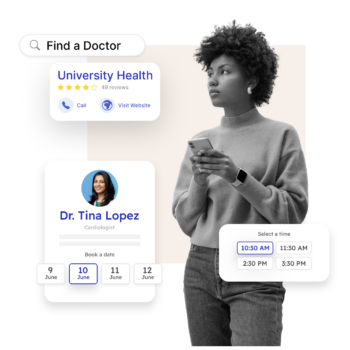
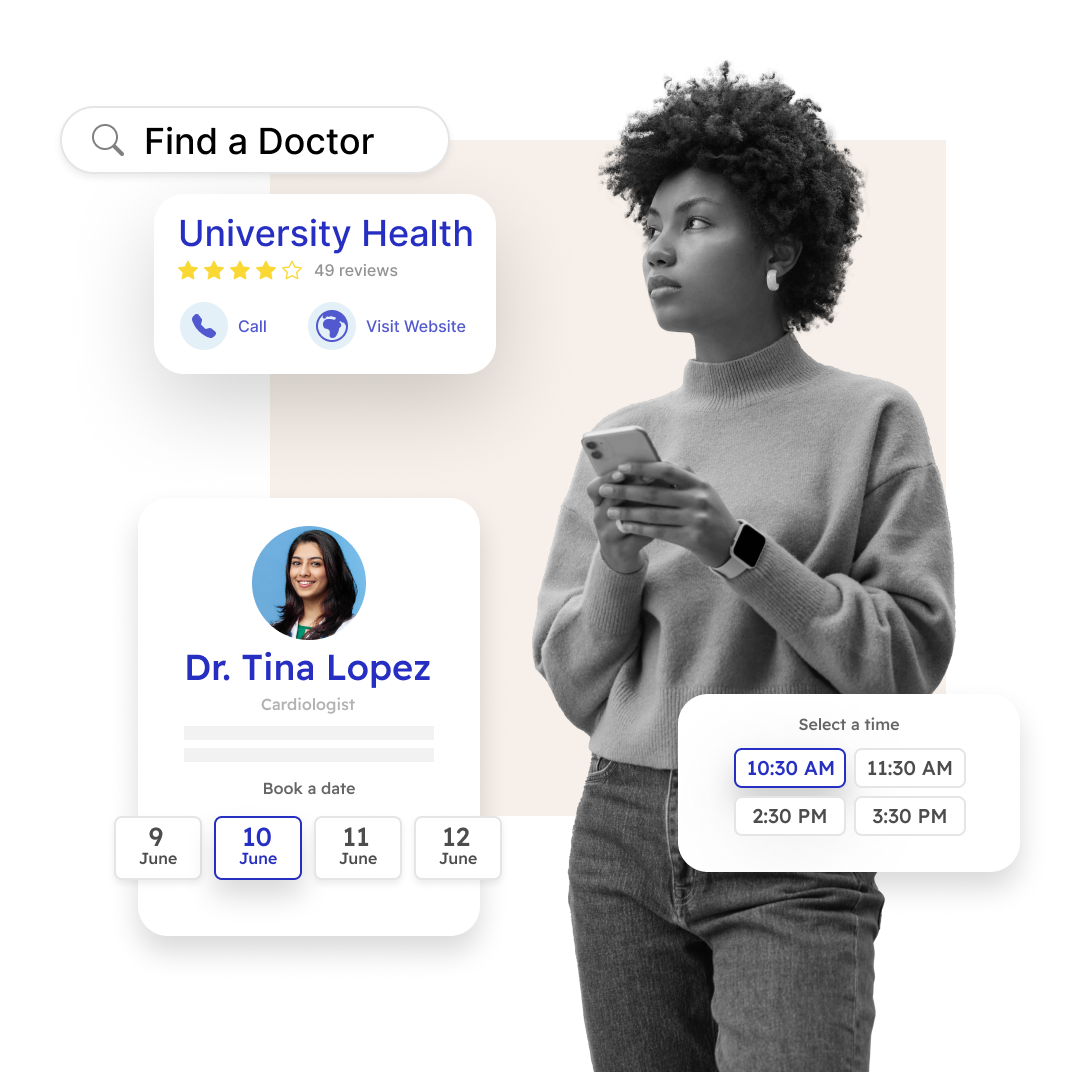
 Veterans Affairs
Veterans Affairs
